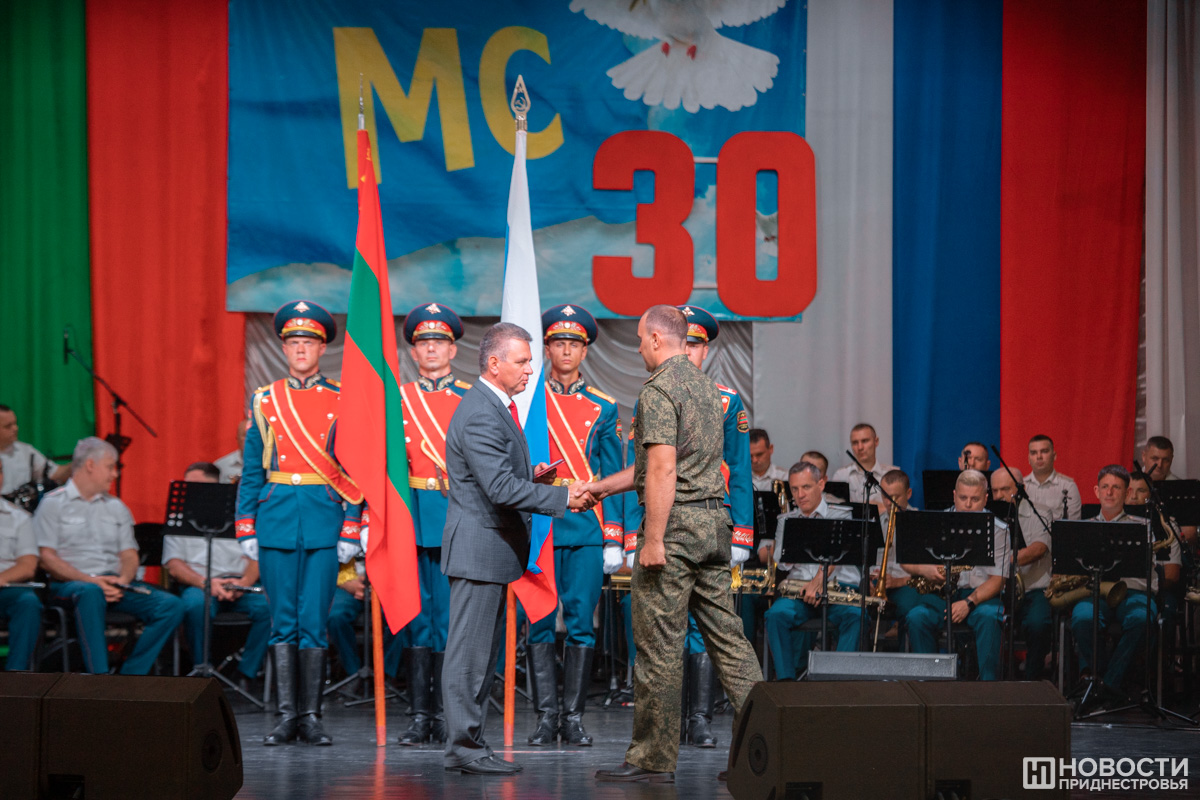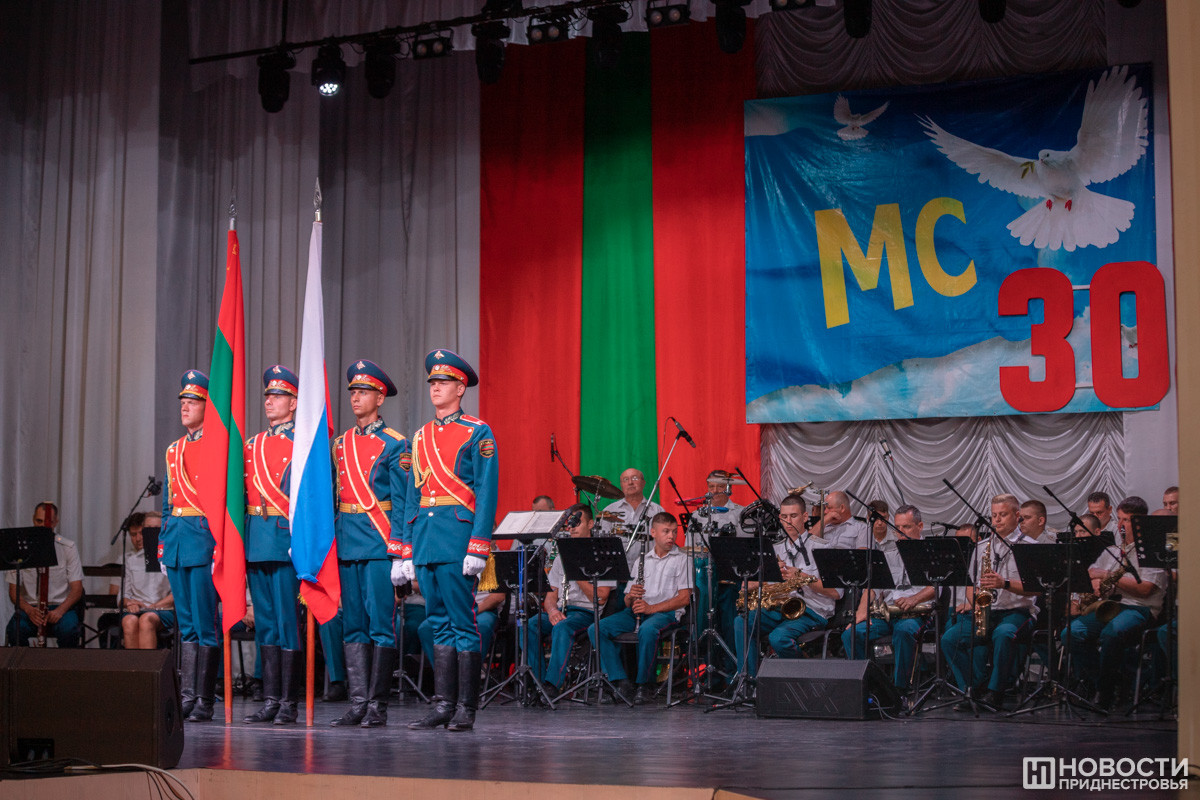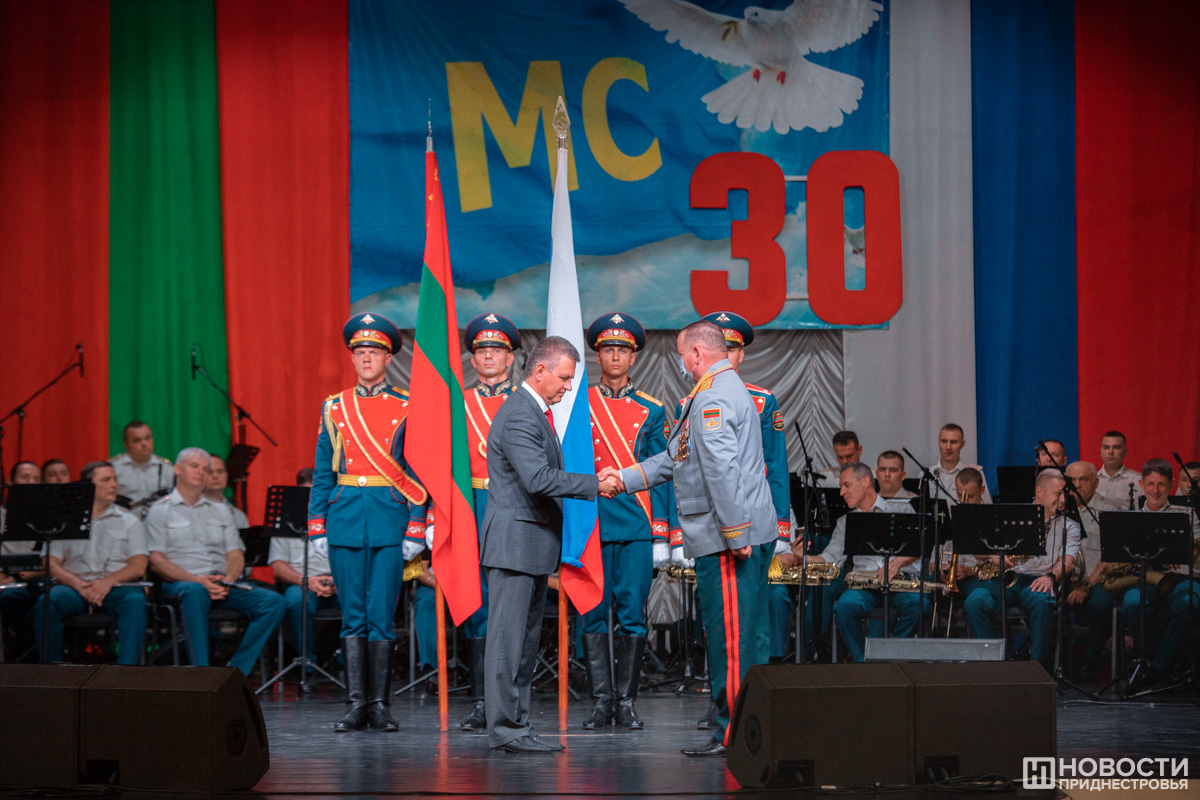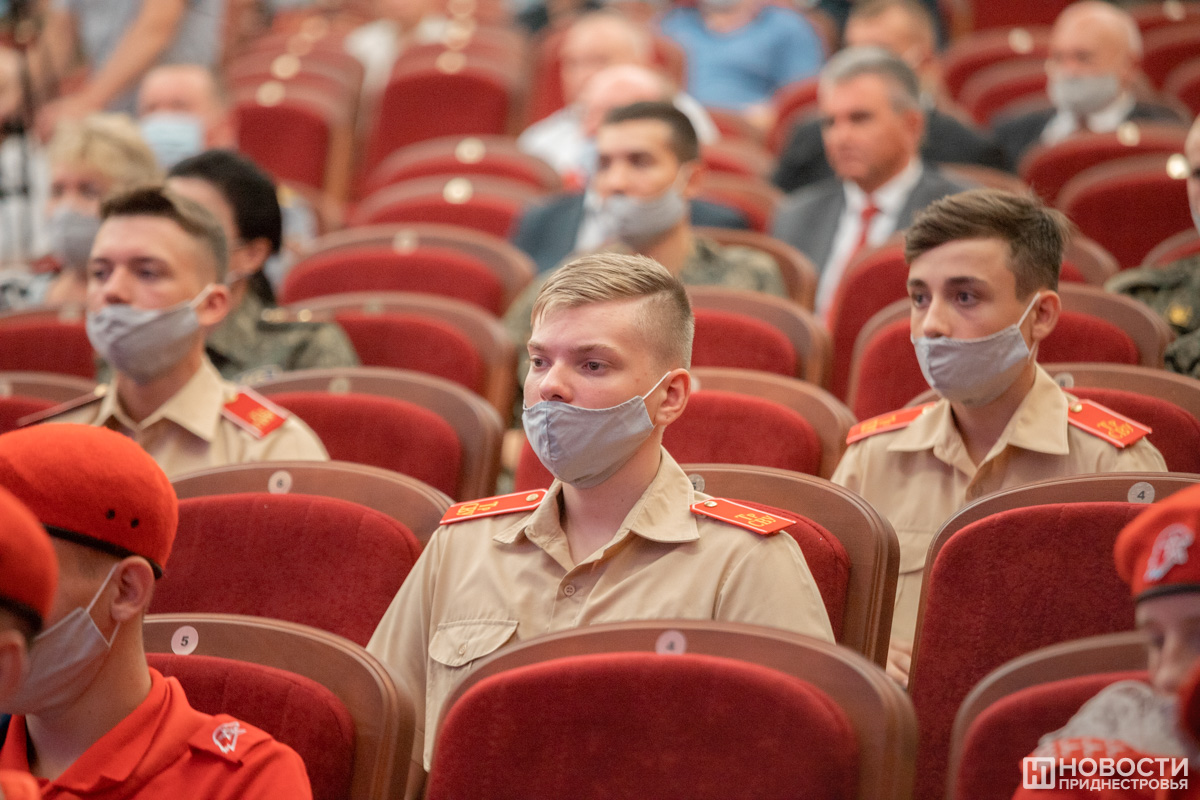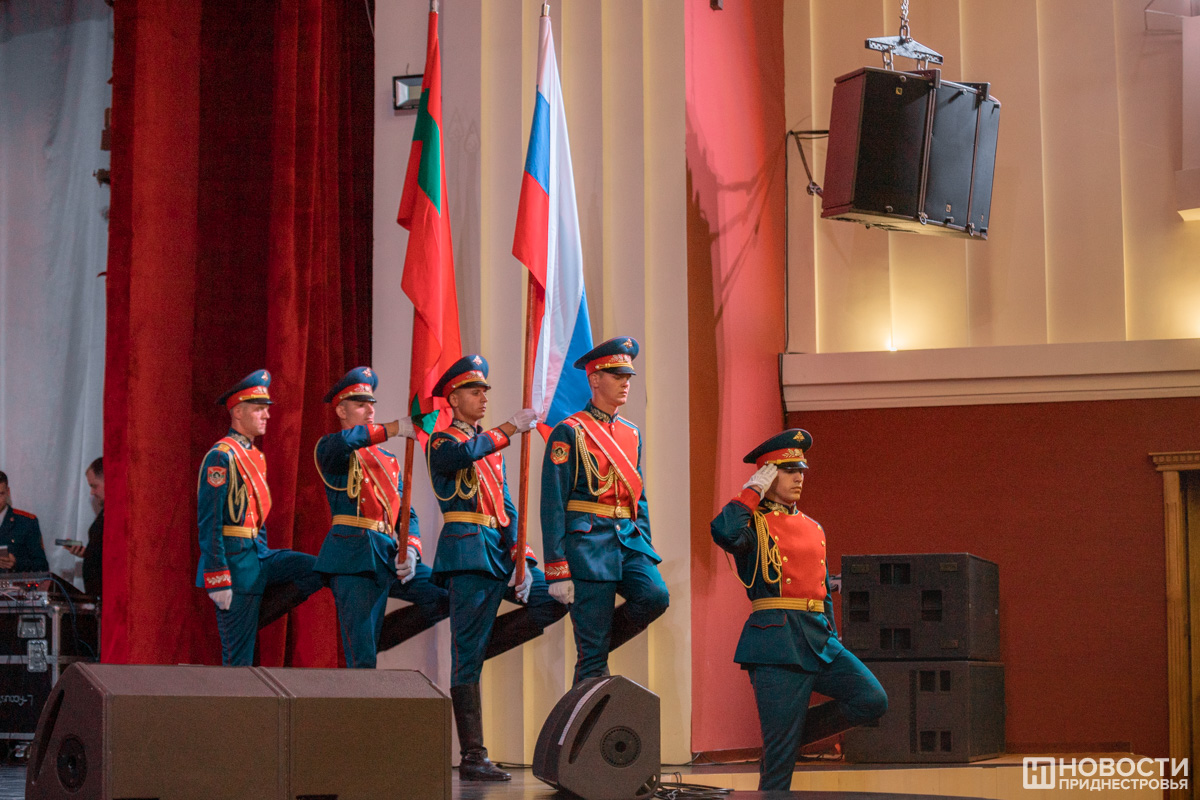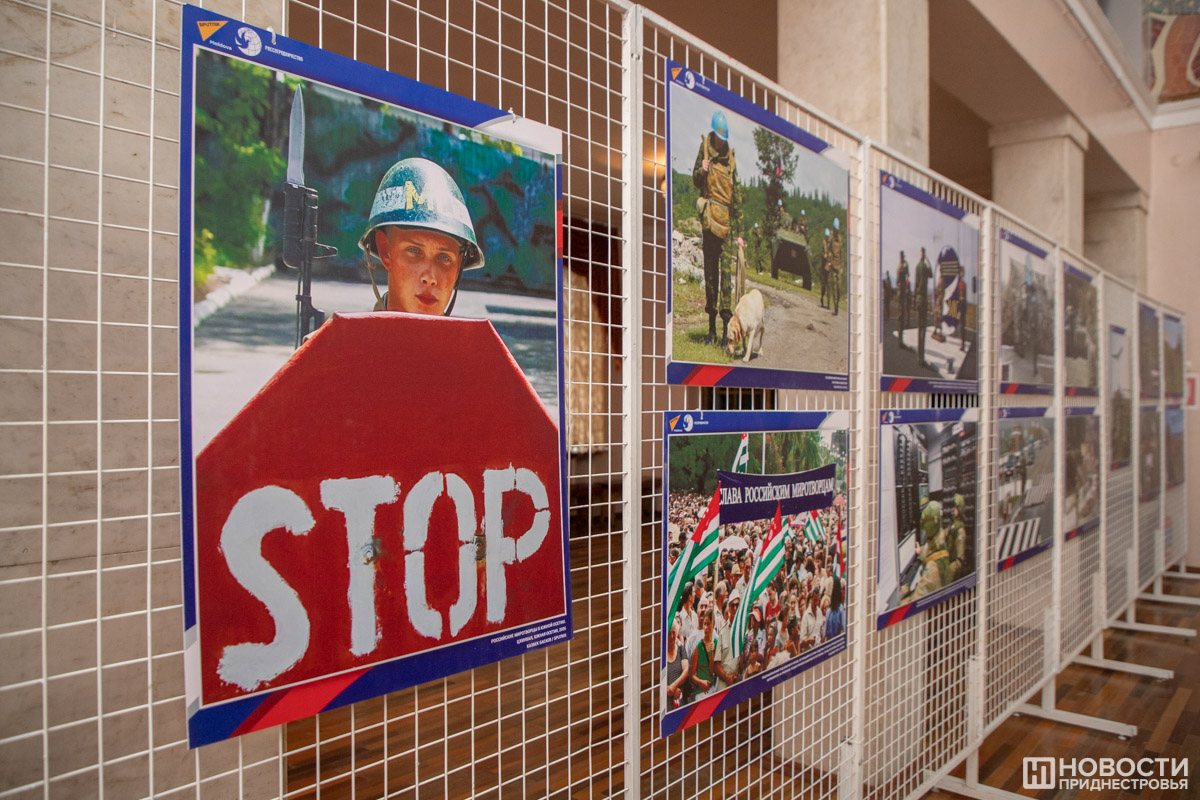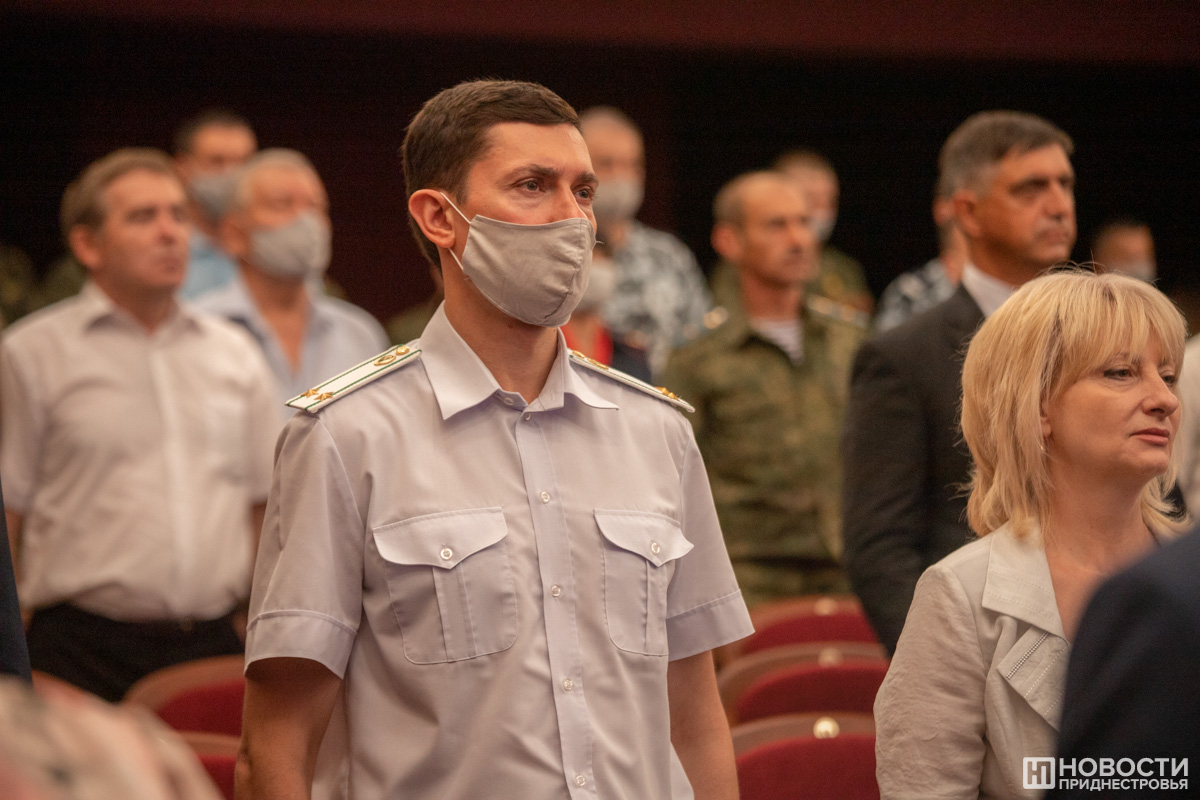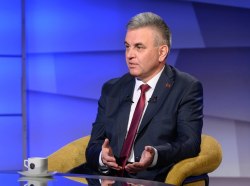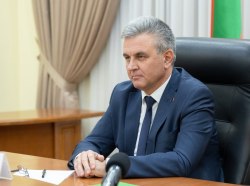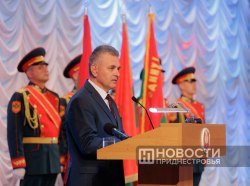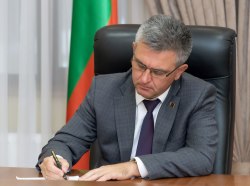Festive events dedicated to the 30th anniversary of the entry of peacekeeping forces into Pridnestrovie continued with a solemn meeting. The PMR President Vadim Krasnoselsky took part in it.
The celebration was organized in the hall of the Bendery Palace of Culture named after Pavel Tkachenko. Co-chairman of the JCC from Pridnestrovie Oleg Belyakov said that the working meetings of the members of the Joint Control Commission are held there weekly on Thursdays. He devoted his report to the history of creation, significance, and today's realities of the work of the JCC – an important element of the peacekeeping mechanism that has been functioning smoothly for three decades.
The Commander-in-Chief of the Armed Forces of the Pridnestrovian Moldavian Republic Vadim Krasnoselsky addressed the personnel of the Joint Peacekeeping Forces with words of gratitude and congratulations. The President recalled more than two centuries of peacekeeping on the banks of the Dniester, emphasizing that its history is inextricably linked with the history of the Pridnestrovian land.
“Peacekeeping here, on the banks of the Dniester, in Little Russia, was founded by Empress Catherine the Great. Please, pay attention to the date of formation of our cities, regions. This is the end of the 18th century. Catherine the Great began to populate the left bank of the Dniester after well-known geopolitical events. She offered freedom, land and protection to all people here, regardless of their nationality. That is why Russians, Ukrainians, Moldavians, Jews, Armenians, and many others came here. They felt safe here.
Please, pay attention to the dates of formation of Moldovan villages. This is late 18th century. Bessarabia was a stronghold of the Ottoman Porte. Naturally, the Moldavian population of Bessarabia had no rights – neither property nor personal. Catherine the Great invited Moldovans here from the right bank under the protection of the Russian crown, under the protection of a Russian soldier. This has a historical analogy.
The first to defend this region were the Cossacks of the Black Sea Cossack Army. There were military units then. As for the present, the collapse of the Soviet state, war on the Dniester and who came to the defense of our republic? Of course, people, including the Black Sea Cossack army, and ordinary people who valued their land, their freedom. Thanks to the feat of the defenders of Pridnestrovie, Russia's peacekeeping mission continued. Russia stopped the massacre on the Dniester.
What is very dangerous today? Dangerously, some Moldovan politicians claim that the July 21, 1992 Agreement was signed under pressure from the Russian Federation, since the 14th Army allegedly threatened the security of Moldova. This is not true, this is hypocrisy. It wasn't like that at all. The Russian army stopped the war on the Dniester, saving the lives of not only Pridnestrovians, but also Moldovans, people of many nationalities.
For example, new historical collisions arise, such as the recognition by the Council of Europe of Russia as an occupier, and the Pridnestrovian region as an occupied territory. What about the Agreement of 21 July 1992? How can they be in the same legal plane? This is a collision. Everyone who voted from the Moldovan delegation should think about this.
Let’s talk about Catherine the Great. She populated these lands with people of different nationalities, but she could not even think about the surge of nationalism, aggression between people. Did she want it? Of course not. What do we see today? The growth of nationalism, aggression, total lies, legal conflicts, the absence of international law. It doesn't exist really. Whoever is stronger is right – that's the whole wording.
What worries Pridnestrovie? What are we striving for? This is independence and desire for international recognition of the Pridnestrovian Moldavian Republic. I see no other options for resolving the conflict, no one who understands anything about this conflict, who knows the history of this land, our relations with Moldova, sees it. It is a fact.
Joint peacekeeping forces with the base component of the Russian Federation keep peace in this land. Today's peacekeepers of the Joint Peacekeeping Force continue the mission of their ancestors. This is also a fact. This is the success of the peacekeeping mission,” said Vadim Krasnoselsky.
On behalf of the Pridnestrovian people, Vadim Krasnoselsky expressed gratitude to the President of the Russian Federation Vladimir Putin, the Minister of Defense of the Russian Federation Sergei Shoygu and every soldier who ensures peace in Pridnestrovie.
The congratulatory telegram of the Minister of Foreign Affairs of the Russian Federation Sergey Lavrov was read out by the Extraordinary and Plenipotentiary Ambassador of Russia to Moldova Oleg Vasnetsov.
The co-chairman of the JCC from Russia Alexander Andreev also congratulated the peacekeepers. He emphasized that the peacekeeping operation has stood the test of time and confirmed its role as the most important instrument in ensuring peace.
The PMR President Vadim Krasnoselsky presented state awards and "30 years of the peacekeeping operation" commemorative medals in the course of the solemn meeting.
The event continued with a festive concert prepared by the orchestra of the General Staff of the PMR Armed Forces under the direction of Colonel Vitaly Voinov.

